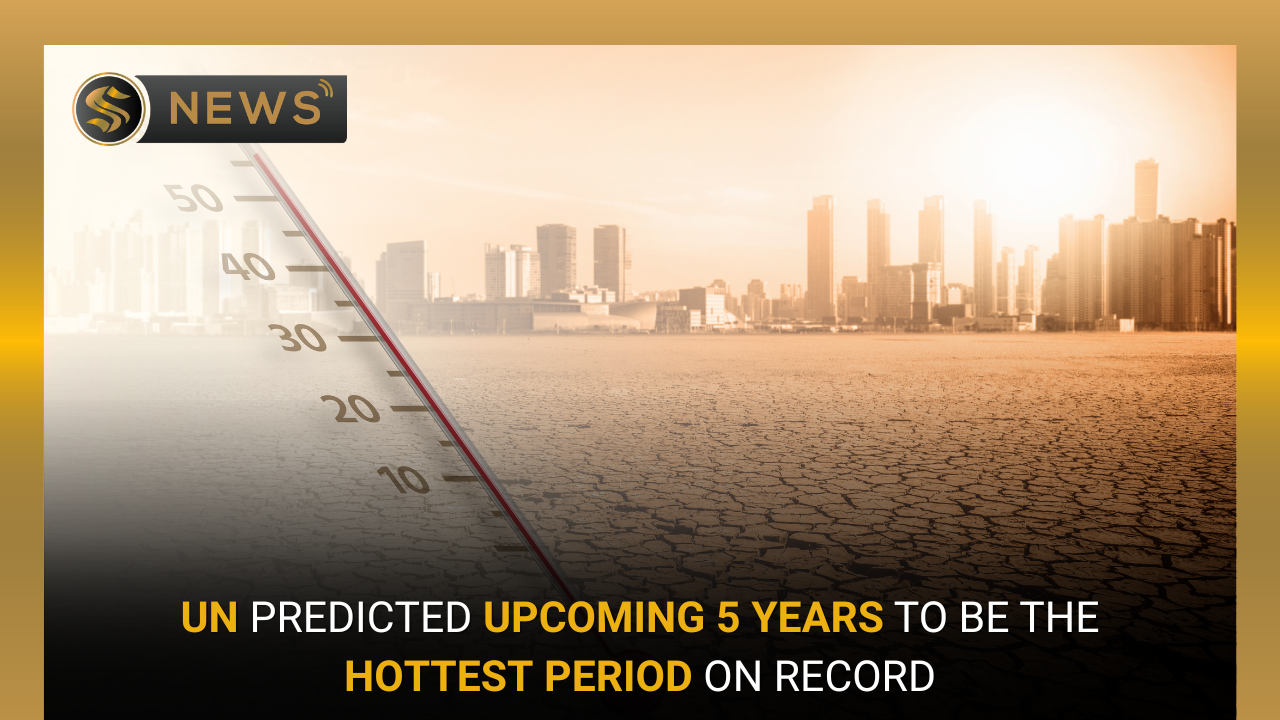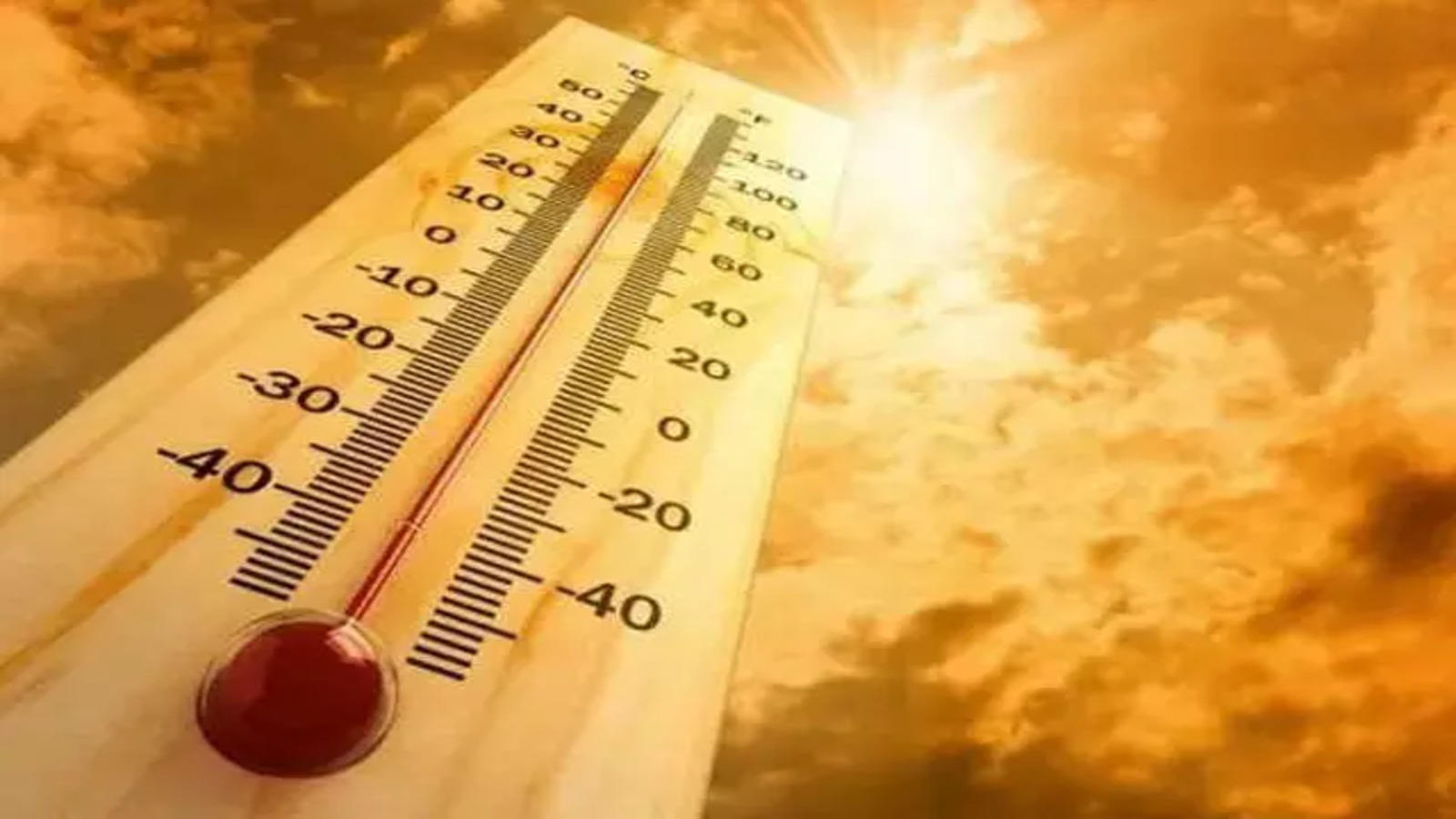
Share This Story, Choose Your Platform!
Next 5 Years to Experience the Highest Temperature to Date, Warns UN
United Nations Organization (UNO) has warned that 2023 – 2027 could be the warmest period on record. The hottest years were recorded between 2015 and 2022, with 2016 as the hottest year. These statistics suggest that the temperatures are soaring continuously. In addition, World Meteorological Organization (WMO) has also predicted that there is a 98% chance that one of the next five years will be the warmest year.
Climate Change has Caused Extreme Weather Conditions
Climate change has caused high temperatures in recent years due to increased greenhouse gases such as carbon dioxide, in the atmosphere. These gases trap heat from the sun, preventing it from escaping back into space. It results in a warming effect, which can cause an increase in global temperatures. Furthermore, climate change can cause extreme weather events, such as heat waves, which can cause temperatures to soar even higher than usual. It negatively impacts our planet including ecosystem changes, sea-level rise, and more severe weather patterns.

Possible Measures to Slowdown Climate Change
Several measures can be taken to prevent climate change, including:
- Reducing Greenhouse Gas Emissions
- Promoting Energy Efficiency
- Investing in Sustainable Transportation
- Planting Trees
- Implementing Policies and Regulations
- Supporting Research and Development
These are just a few examples of the measures that can be taken to prevent climate change. Addressing this global challenge will require a combination of individual and collective actions.
Measures Taken Practically to Address Climate Change
Several steps have been taken to prevent climate change. Some examples include:
-
The Paris Agreement
This international treaty was signed by most countries in 2015. It aims to limit global warming to well below 2°C above pre-industrial levels and to pursue efforts to limit it to 1.5°C.
-
Renewable Energy Targets
Many countries have set renewable energy targets to transition away from fossil fuels and towards renewable energy sources such as solar, wind, and hydropower.
-
Carbon Pricing
Several countries and regions have implemented a carbon pricing system, which puts a price on carbon emissions to encourage the reduction of greenhouse gas emissions.
-
Energy Efficiency Standards
Governments have implemented energy efficiency standards for buildings, appliances, and vehicles to reduce energy consumption and greenhouse gas emissions.
-
Reforestation and Afforestation
Many countries have committed to reforestation and afforestation projects which involve planting trees to absorb atmospheric carbon dioxide.
You May Also Read
Pakistan among seven states to get climate disaster funding
Measures Not in Full Force
It has been observed that the steps mentioned above are not being fully implemented. It has been stated at the UNO summit that we have not been able to limit the warming so far and are still moving in the wrong direction. It has been stated that it will take until the 2060s to wind down the negative trend and stop things from worsening.
Effect of High Temperature on Daily Lives of Individuals
High temperatures can have a significant impact on daily life. People may experience discomfort and exhaustion due to the heat, making it difficult to complete daily tasks. Heat can also exacerbate pre-existing health conditions such as asthma, and increase the risk of heat-related illnesses like heat stroke and dehydration. In extreme cases, high temperatures can even be life-threatening.
Coping with the Effects of High Temperature
With extreme weather conditions and temperatures, constantly rising each day, everyone should adopt some preventive measures. There are several ways to cope with the effects of high temperatures, some of which are mentioned below:
-
Stay Hydrated
Drink plenty of water throughout the day even if you don’t feel thirsty. Avoid alcohol and caffeine, as they can dehydrate you further.
-
Stay Cool
Stay in air-conditioned buildings or use fans to circulate air. Take cool showers or baths, or place a damp cloth on your forehead or neck.
-
Dress Appropriately
Wear lightweight, light-colored clothing made from breathable fabrics like cotton or linen. Avoid dark colors, as they absorb the sun’s heat.
-
Avoid Strenuous Activity
If possible, avoid exercising or doing other strenuous activities during the hottest parts of the day.
-
Check on Others
Older people, children, and pets are particularly vulnerable to the effects of high temperatures. Check on them regularly to make sure they’re staying cool and hydrated.
By following these tips, you can reduce the impact of high temperatures on your daily life and stay safe and healthy during hot weather.
Bottom Line
The hot weather conditions will negatively impact everyone regardless of nationality, religion, and race. However, some people are more vulnerable due to age factors, such as older people and kids. We must play our part to counter climate change as it affects everyone equally. Many steps at national and international levels have been taken but have not been implemented in full force yet.




